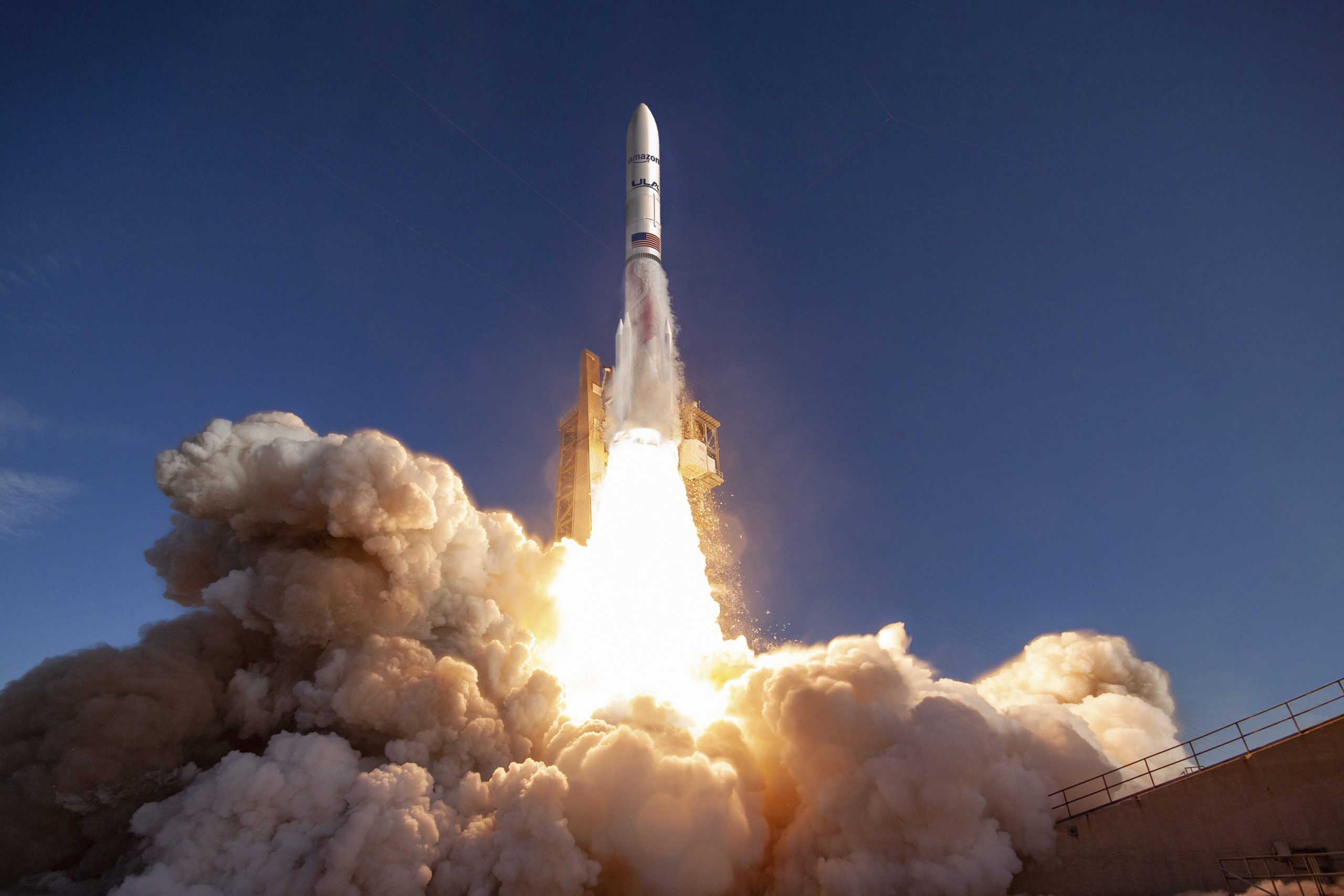Amazon To Construct Project Kuiper Satellite Factory, Near Seattle

Starlink challenger. Project Kuiper internet satellites are to be constructed at new factory in the Seattle suburb of Kirkland
Amazon said it will expand its Project Kuiper manufacturing capability, with the development of a dedicated, 172,000-square-foot satellite production facility in Kirkland, Washington.
The announcement of the new satellite factory, comes after it announced in 2020 its initial 219,000 square-foot research and development facility to develop prototype internet satellites.
Earlier this month Amazon revealed that Project Kuiper will launch two prototype satellites in early 2023 onboard a new rocket.

New factory
Its first two satellites (known as Kuipersat-1 and Kuipersat-2) will be completed later this year, and it plans to deploy both satellites on the first flight of United Launch Alliance’s (ULA) new Vulcan Centaur rocket in early 2023.
The new 172,000-square-foot facility in Kirkland will be dedicated to satellite manufacturing, as Amazon plans to launch 3,236 satellites into low Earth orbit to extend high-speed broadband internet access around the globe.
To this end Amazon in April signed a rocket deal with three firms to provide heavy-lift launch services for Project Kuiper.
Amazon secured up to 92 launches with ULA, Arianespace, and Blue Origin to deploy its constellation – “marking the largest commercial procurement of launch vehicles in history.”
This will allow Amazon’s Project Kuiper to start to challenge SpaceX and its Starlink constellation, as well as OneWeb.
“These facilities have the capacity to support prototype development and begin commercial satellite production, but to deliver on our vision for the project, we need to operate on a much larger scale,” said Amazon.
“That requires dedicated manufacturing space, and we’re excited to announce plans to develop a dedicated, 172,000-square-foot satellite production facility in Kirkland, Washington,” it said. “The new facility will create more than 200 highly skilled aerospace and manufacturing jobs in the Puget Sound region and provide the scale required to build as many as four satellites per day.”
Amazon devices chief Dave Limp said in an interview with The Washington Post that in order to meet its target of getting 3,000-plus satellites into orbit, Amazon will need to build one to three satellites “every single day, maybe even a little more than that.”
“Getting Project Kuiper’s satellites into space requires significant precision, expertise, and a world-class team committed to our vision,” said Rajeev Badyal, VP of technology for Project Kuiper.
“This new satellite production facility will significantly expand our manufacturing capacity as we approach launch and deployment, and it brings us another step closer to delivering on our mission to connect unserved and underserved communities around the world,” said Badyal.
Amazon said that Project Kuiper satellites have been designed and developed in-house to maximise performance while reducing costs, and it manufacturing facility will give Amazon additional control over the production and testing process.
![]()
It said that by centralising operations here in the Puget Sound, it can also ensure close coordination between design and development teams in Redmond and manufacturing teams in Kirkland.
“We’re excited with Amazon’s selection of Kirkland for Project Kuiper’s satellite production facility,” said Kirkland Mayor Penny Sweet. “Whether you’re looking to get your foot in the door or are pursuing an advanced, high-level career, this will bring even more economic opportunity for professionals who live here and for those who have yet to call Kirkland home.”
Satellite connectivity
Amazon’s founder and former CEO Jeff Bezos had announced Project Kuiper back in 2019.
Bezos admitted at the time that Project Kuiper would cost billions of dollars to build.
“It’s also a very good business for Amazon because it’s a very high-capex [capital expenditure] undertaking,” said Bezos four years ago. “It’s multiple billions of dollars of capex. … Amazon is a large enough company now that we need to do things that, if they work, can actually move the needle.”
Then in July 2020 the Federal Communications Commission (FCC) gave its official approval for Amazon’s Project Kuiper satellites – Amazon pledged to invest $10 billion in the project.
Project Kuiper aims to provide high-speed, low-latency broadband to a wide range of customers, including individual households, schools, hospitals, businesses, government agencies, disaster relief operations, mobile operators, and other organisations working in places without reliable internet connectivity.
Amazon said that more than 1,000 people currently work on Project Kuiper, and the team is making considerable progress as it prepares to serve tens of millions of customers around the world.